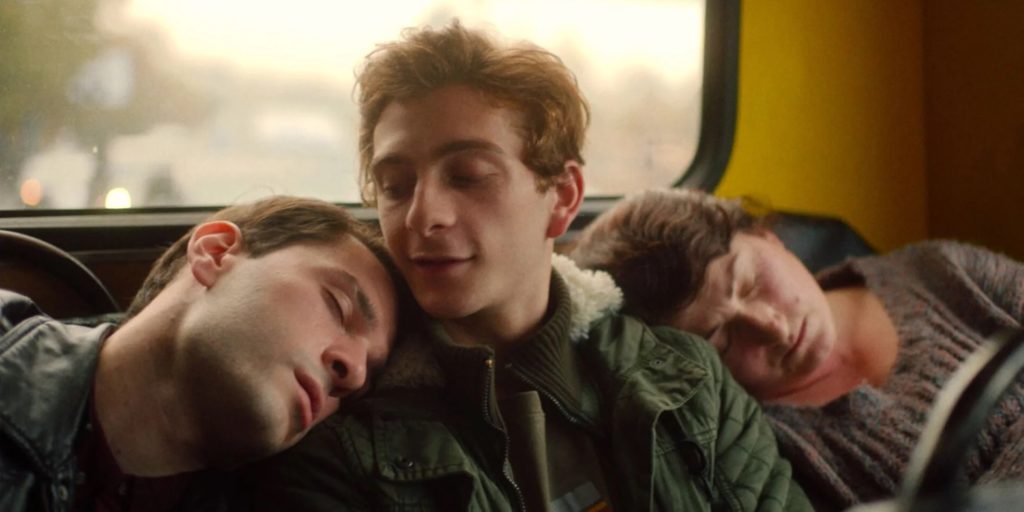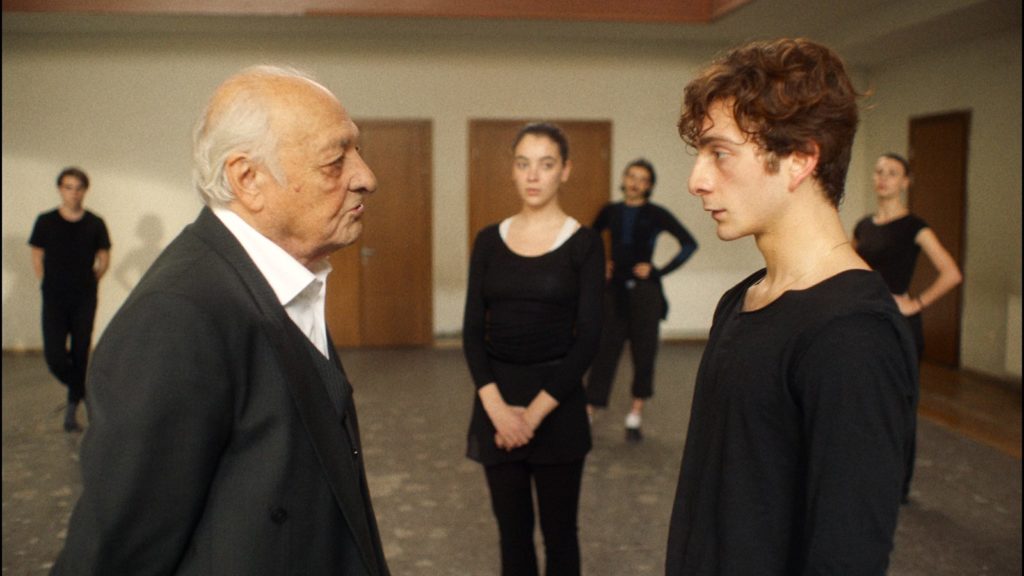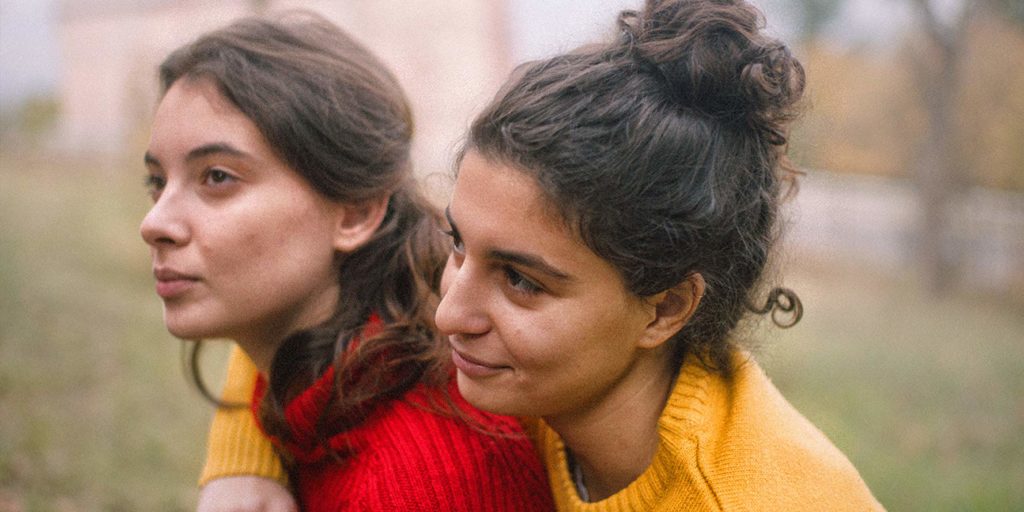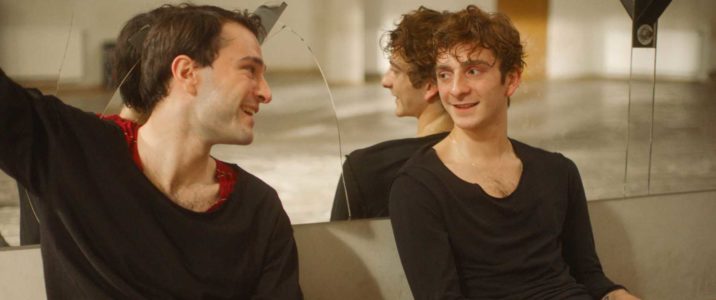If to dance is to live, as equated in the famous exchange from The Red Shoes, then to live is to affirm one’s existence. The political tenets underlying this postulation frequently manifest in the gendered, often queer, connotation of dance as a vocation and an interpersonal exchange between partners. So prevalent is this subtext in cinema that by the time Stephen Daldry’s Billy Elliot leapt onto screens, the typical entry within the subgenre diluted the political provocation performance posed toward rigid hegemonic attitudes in favor of individualistic underdog stories. And Then We Danced attempts to rectify this depoliticization by directly addressing a generation emerging from a complex national history, one which has greeted this often tender love story with controversy and outright hostility in its own nation.
The nation in question is Georgia, and the protagonist of Levan Akin’s story is a teenage dancer named Merab (Levan Gelbakhiani) auditioning for a placement within the National Ensemble in Tribili. He is driven both by a longstanding love for the act as well as providing financial stability for the family he still lives with, save for his itinerant father who sells trinkets in a scrap yard. As Merab bobs and weaves in the film’s opening sequence, his instructor (Kakha Gogidze) harshly reprimands his effete poise. Indeed, both Merab and the audience will be repeatedly told that Georgian Dance is a masculine one that, in the words of an elderly authority figure (Marlen Egutia), provides “the spine of the nation.” For Merab, this navigation between a national and personal identity is quietly upended upon the sudden arrival of a new dancer, Ikrali (Bachi Valishvili).

Their initial courtship, laced with flirtation masquerading as macho posturing, is dotted with past trauma which is both personal and societal. Merab’s observation of an early scar Ikrali sustained as a baby is subtly echoed in the Armenian graveyard they joyfully bound through during an afternoon idyll. This latter example is an innocent venture which nevertheless evinces a normalization of an abstract history, specifically one of a violent past with the Armenian people. These young adults have a cursory understanding of what their stature within a national dance company would entail, but the collision between artistic expression and nationalist gesticulation leaves them wavering in suspended tension. In a moment of quiet poignancy, during a morning prayer at a country house, the camera tracks laterally along the dinner table, passing many of the young characters seated near their elders. Their stringent place within a cultural narrative dictated by Orthodox Christianity molds their identities before they fully realize it themselves.

The preordained and the transgressive conflict when signifiers of tradition are challenged. The greatest threat toward the form of tradition depicted in the film, aside from homosexuality, is globalization, which a priest identifies with positively snide derision. But the film reinforces the intractable momentum of transnational discourse in providing a new generation with the tools needed to articulate their personal and political identities. Not for nothing do these young people listen to Abba or have stills from films like Spirited Away plastered on their bedroom walls. These pop culture paraphernalia provide Merab and his peers conduits for processing their own loneliness and wayward yearning. These feelings transform to riveting effect when Merab and Ikrali consummate their feelings for one another during an impromptu dance to Robyn, emitting electric pangs of nascent eroticism.
While the emotional tenor of the characters is inextricable from their political reality, they are mostly spared serving as agitprop mouthpieces. The structure of Akin’s script only begins showing its seams in the second half once his scenario succumbs to several clichés. In a film populated almost predominantly by men, the most regrettable misstep lies in the figure of Mary (Ana Jakishvili), Mareb’s longtime dance partner and confidant. Her realization of Mareb’s budding sexuality plays out in mostly silent, worriedly disapproving glances, borne in part from the knowledge of a peer who was committed to a parish upon the discovery of his own sexuality only to be subsequently molested by the priests there. Yet Mareb and Mary’s inevitable reconciliation feels underdeveloped, a sentimental gesture toward intersectional allegiance belied by a pat execution.

Another subplot which suffer from a rushed conclusion include Merab’s tumultuous familial life, particularly in regards to his ne’er-do-well brother David’s (Giorgi Tsereteli) diablerie jeopardizing Merab’s night job waiting tables. Their contentious relationship strives to illuminate some of the economic pressures facing the new generation in Georgia whilst generating empathy from a global audience. Yet it ultimately feels incidental to Akin’s greater interest in the salve artistic expression provides for his hero. Akin’s brief dalliance in the Neighborhood Playhouse in New York certainly informs his dance sequences with a kinetic ebullience, aided strongly by his performers, even as his pattern of editing (in collaboration with Simon Carlgren) veers perilously close to the metronomic. At its strongest, And Then We Danced makes effective use of its dialectic between a performer and their audience upon a social stage. It is when this delicate dance between the private and public wavers that Akin’s earnest endeavor begins to stumble in its footing. Yet an underwhelming denouement does little to dilute the film’s occasional poses of assured grace.
